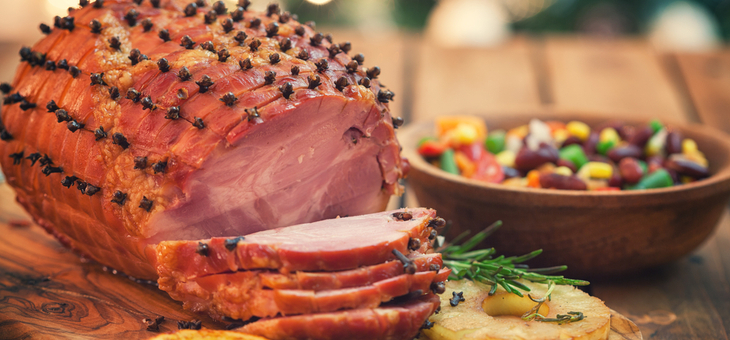The heat is on … the Christmas ham.
Are you getting what you’re paying for? Are you sure that the weight on the packaging is the actual weight?
With news this week that Christmas ham inspectors are out in force to ensure manufacturers and shop owners are not telling porky pies at the register, you can rest a little easier.
Fun aside, the federal government is aiming to ensure that Australian families are getting every gram they are paying for. Inspectors from the National Measurement Institute (NMI) are quietly auditing businesses across the country to ensure they’re complying with trade measurement law.
Industry, Science and Technology Minister Karen Andrews says Australians should be able to feel confident that they’re not getting ripped off for Christmas lunch.
“Every dollar counts, particularly around Christmas time, so our inspectors will be looking closely at sales of seasonal goods such as hams and prawns to ensure Australians aren’t ripped off by scrooges using dodgy scales or weights,” she said.
“The national audit will include a focus on businesses previously found to be in breach of trade measurement law, to ensure they’ve taken appropriate actions and are once again doing the right thing.”
Inspectors carry out their checks covertly, making purchases then identifying themselves and cross-checking that both the product and the scales meet trading rules, such as properly accounting for the weight of packaging materials when selling over the counter.
The department says scales will be checked to confirm that they’re fit for trade use and measuring accurately, and packaged goods will be checked to ensure they contain the amount of product claimed.
Businesses found to be breaking the rules could be fined more than $1000 per offence.
For more information or to report a suspected breach of the rules, contact the national trade measurement helpline on 1300 686 664 or [email protected].
In other shopping news, the Australian Competition and Consumer Commission (ACCC) says Australians have already lost more money to online shopping scams in 2019 than in the entire previous year, and Scamwatch is warning people to be cautious of such scams in the lead up to the holiday season.
So far in 2019, reported losses from online shopping scams are more than $4 million, compared with the total sum in 2018 of $3.28 million.
“Scammers often try to take advantage of people doing their Christmas shopping, including in the upcoming Black Friday and Cyber Monday sales,” said ACCC deputy chair Delia Rickard.
“Reported losses have tripled over the past three years and it is concerning that losses from this year are already so high.”
Two common online shopping scams are:
Fake websites/stores. Scammers set up fake online stores, on websites or social media, which can look like genuine online retailers. Many offer luxury items at very low prices but you may receive a fake item or nothing at all.
Fake sellers. Scammers may pose as genuine sellers on classifieds websites. They may claim that they are travelling and an agent will deliver the goods once you have paid, but you won’t receive the goods and will be unable to contact the seller.
Ms Rickard said that some of the most commonly reported products scammers are attempting to sell this year were shoes, smartphones and tickets to events, with losses from these items already exceeding $500,000.
“Warning signs for online shopping scams include extremely low advertised prices and requests to pay through direct bank transfer or cryptocurrency,” she said.
“We encourage everyone to do their research before making an online purchase and if purchasing expensive goods, not to make payment until they have inspected the product.”
She asks everyone to spread the word and help protect vulnerable consumers.
Further information about scams is available at scamwatch.gov.au.
Are you super vigilant when shopping online in the lead-up to Christmas?
If you enjoy our content, don’t keep it to yourself. Share our free eNews with your friends and encourage them to sign up.
Related articles:
Least ethical occupations revealed
Government looking after top end: report
Signs you’re low on protein

